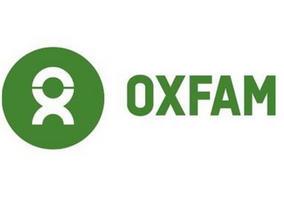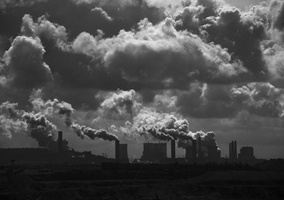Barclays is to stop directly financing energy clients’ new oil and gas projects, following pressure from civil society organisations.
Charities such as Oxfam and Christian Aid have withdrawn funds from Barclays over climate concerns in recent months, while the National Trust has urged the bank to review its climate policies.
Barclays has now published a revised climate change statement, including restrictions for investments in new and non-diversified oil and gas clients engaged in expansion.
Its new policy outlines several commitments, including restrictions for new energy clients engaged in expansion and restrictions on non-diversified energy clients engaged in long lead expansion.
Barclays said in a statement: “This policy is an important lever for reducing our financed emissions and has been informed by engagement with stakeholders – shareholders, clients, climate experts and civil society groups, including ShareAction.”
It added: “Barclays will continue to support an energy sector in transition, focusing on the diversified energy companies investing in low carbon and with greater scrutiny on those engaged in developing new oil and gas projects.
“The scale of our business gives us the opportunity to help finance the energy transition; to use our global reach, products, expertise and position in the global economy to work with our clients, including those in the energy sector, as they transition to a low-carbon business model.”
A spokesperson for the National Trust said: “We welcome this announcement from Barclays but will continue engaging with them and the banking sector as a whole on finding urgent solutions to the climate crisis.”
Christian Aid: Laggards on fossil fuel finance
Christian Aid welcomed the move but said Barclays remained “laggards on fossil fuel finance” and that other organisations considering dropping the bank should still do so.
“This new announcement only brings them broadly into line with other banks and does little or nothing to address their status as laggards on fossil fuel finance,” said senior advocacy advisor Ashley Taylor.
“In this case, Barclays are big on rhetoric and low on action, and this announcement should do nothing to persuade those organisations considering ditching the bank, to reconsider.”
ShareAction: Could have gone so much further
The bank reported that responsible investment charity ShareAction and a co-filing group of investors filed a resolution in December 2023 in relation to the bank's climate strategy.
Barclays said ShareAction has confirmed that, following extensive engagement with Barclays’ senior leadership, they intend to withdraw the resolution, “recognising Barclays’ ongoing work in progressing its climate strategy and commitment to continuing engagement, including an annual meeting for the co-filing group with the Barclays Group CEO”.
Kelly Shields, campaign manager at ShareAction, welcomed Barclays’ policy update but said it could have been more ambitious.
“It contains some positive commitments from the bank including its decision to set basic climate tests for its oil and gas clients, alongside its promise to stop financing new oil and gas projects directly,” she said.
“However, the strategy could have gone so much further. Barclays’ intention to request decarbonisation plans from its oil and gas clients is the right one. But for it to have teeth, the bank must demand clients stop engaging in activities that increase the climate crisis such as oil and gas exploration.
“Barclays is wrong not to have ruled out financing companies that focus exclusively on fossil fuel extraction. This should include fracking, which is causing so much environmental and social harm and is an activity the bank is heavily exposed to.
“We should expect the banks’ shareholders to hold them to account on this policy and make significant efforts to close the loopholes in this strategy.”
Related Articles











